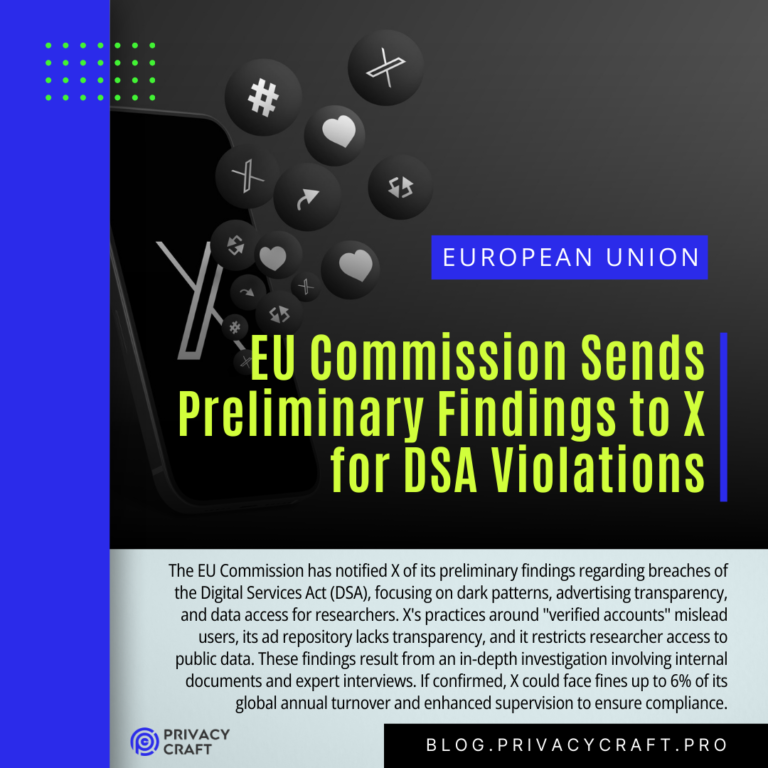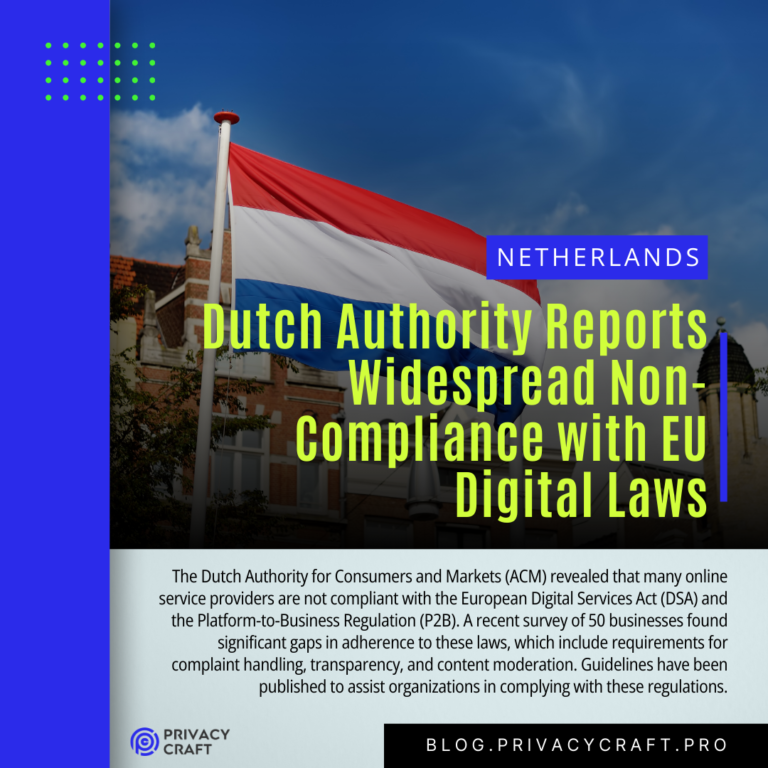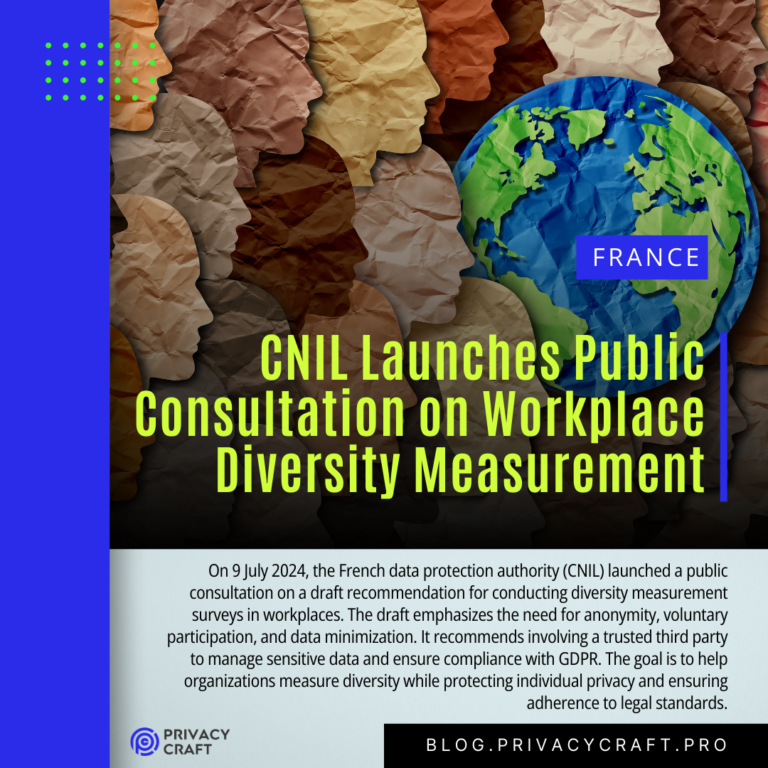EU Commission Sends Preliminary Findings to X for DSA Violations
The EU Commission has notified X of its preliminary findings regarding breaches of the Digital Services Act (DSA), focusing on dark patterns, advertising transparency, and data access for researchers. X’s practices around “verified accounts” mislead users, its ad repository lacks transparency, and it restricts researcher access to public data. These findings result from an in-depth investigation involving internal documents and expert interviews. If confirmed, X could face fines up to 6% of its global annual turnover and enhanced supervision to ensure compliance.
EU Commission Sends Preliminary Findings to X for DSA Violations Read More »




